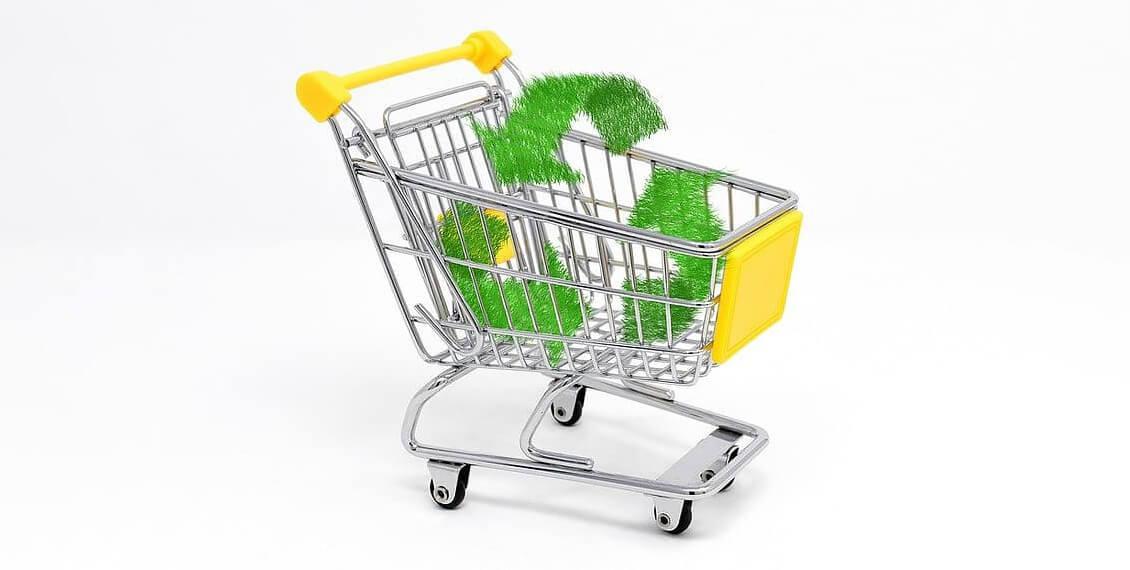6 Simple Steps To Running A More Sustainable Ecommerce Business
By Rodney Laws | Business

The retail world has always suffered major issues with waste, and things didn’t change in that regard when the shift was made from brick-and-mortar stores to online operations.
With climate woes ever worsening and public awareness of issues at an all-time high, though, it’s clear that more and more sellers are coming to appreciate the importance of turning things around.
It doesn’t hurt that a well-executed sustainability strategy amounts to a clear win-win (well, it’s technically a win-win-win: a rare triple win). It’s good for the seller, saving them money and making them look better. It’s good for the buyers, alleviating the guilt that stems from supporting irresponsible companies. Oh, and it’s certainly good for the environment, which in turn is good for the seller and the buyers. After all, it’s where they all live.
But what does such a strategy involve? In this piece, we’re going to set out six simple steps you can follow to run a more sustainable ecommerce business. Let’s get started.
When you’re choosing a host for your website, you need to think about more than cost.
Some hosting providers run all their servers using renewable energy sources — and the great thing about it is that there are still plenty of options out there if you want that (here’s a selection to give you some ideas). You don’t need to compromise performance or reliability.
It’s true that you might not be able to go for the highest-end hosting packages from the providers with the best support services, but the difference shouldn’t amount to anything capable of damaging your operation. This is the perfect first step towards sustainability.
Maybe the simplest way to be more sustainable is to donate to charities that work towards environmental support (some to look at).
You don’t need to donate a huge portion of what you make, of course: anything you can spare will be gratefully received. You can secure your monthly profits before deciding how much to give, or you can simply put a small percentage of every transaction towards a good cause (making this clear to the buyer).
Next comes the thorny issues of retail packaging, because there have been so many issues over the years with how products are stored and shipped. If you’ve ever ordered something online and seen it show up in a box that’s many times larger than it needs to be, you’ll know something about this. Too many sellers focus only on cost, leading them to use the cheapest possible packaging even if it’s terrible for the environment.
At this point, though, you can do better without paying massively more. There are many companies — like Polybags — that focus on producing recyclable packaging and shipping materials, so that’s a great place to start.
You can also get into the habit of sending more items in flexible wrapping instead of boxes. It doesn’t generally look as good, and there can be some minor scuffing on the packaging, but how often is that really an issue?
There’s a good chance that you’ve already cut back on travel due to the pandemic lockdowns, but you may still be making semi-frequent trips to check out new products or negotiate deals.
Whenever you’re considering such a trip, think carefully about whether it’s really necessary. Could things be worked out at a distance? Much of the time, the answer is yes. If you really need to check out products first, have some samples shipped to you.
Sometimes the issue with cutting back on travel is that your prospective suppliers require in-person meetings before proceeding with any agreements. At this point, that’s a glaring red flag. There are plenty of manufacturers and production facilities in the world, and there’s no compelling reason to continue teaming up with irresponsible or irrational companies.
Instead, look out for other businesses that are committed to taking measures like those in this list: businesses that want to operate responsibly and make things better for everyone. You’ll get on better with them, and you’ll feel better for supporting them.
Blogging is an important process for ecommerce companies. It allows them to promote products, engage with their audiences, establish their expertise, and build up valuable SEO equity to help them rank for relevant and actionable keywords.
But blogs don’t need to be solely for self-promotion. They can also be used to spread good advice.
Through your blog, you can talk about the sustainability issues facing ecommerce and retail in general. You can advise on how to improve, call out companies that continue to use wasteful packaging, and encourage readers to get involved somehow through donating to environmental charities or trying harder to find and support other green businesses.
These are six simple steps you can take to run a more sustainable ecommerce business. Adopt some — or all — of these ideas and your company will become more environmentally friendly, while winning over more consumers and saving on overheads. Win-win-win.